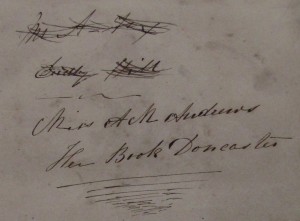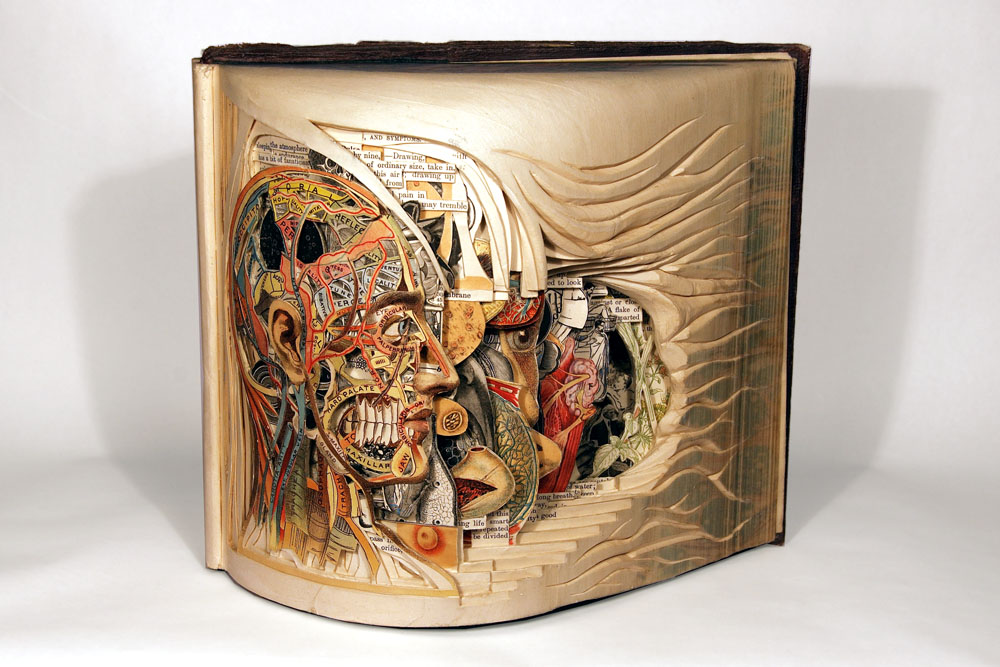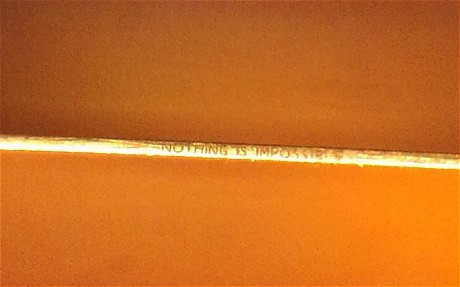Marie Léger-St-Jean has come across three instances of illegible annotation, in the course of curating her Penny Bloods project (www.english.cam.ac.uk/pop/). Post any replies, please!
Since Cambridge’s Lent term is rapidly drawing to an end, it may be worth reminding everyone that for this term only readers are allowed to take cameras into the University Library for fairly unrestricted use in Rare Books, Manuscripts, and Maps (http://www.lib.cam.ac.uk/deptserv/maps/photog.html). We hope that this pioneering experiment will prove successful and that the freedom to photograph for research purposes will be made permanent. And that it will become a model for rare books libraries and archives that currently restrict digital photography.
An interesting debate in the often controversial world of school examinations: according to this article from the Independent last week, the chief executive of Ofqual – the body responsible for monitoring GCSE and A Level examinations – believes that students should have more opportunities to write exam scripts on computers and that ‘school exams are running the risk of becoming invalid as their medium of pen and ink increasingly differs from the way in which youngsters learn.’
The natural familiarity of the youngest generations with computer technology in its increasingly sophisticated forms is a commonplace of contemporary society, but should we be concerned by this embracing of IT as the main medium of writing seemingly at the expense of (rather than alongside) pen and ink, by those near the top of the education hierarchy?
CMT Lunchtime Seminar
Monday 7 March 2011, Board Room, Faculty of English
Authors Under Press(ure): Italian Renaissance Texts between Printing Constraints and Public Demand
Speakers: Prof. Antonio Sorella (University G. D’Annunzio Chieti Pescara) and Prof. Michelangelo Zaccarello (University of Verona)
The first half of the sixteenth century sees a dramatic expansion of the printing industry in Italy: a highly competitive market and an articulate, growing range of readers create a unique intertwining of philological and linguistic issues. The vitality of regional literatures and the ongoing need for an established grammar are factors that force publishers to hire professional editors and proof-readers to produce texts that may be palatable to the widest possible audience. Authors take different approaches to the problem, either permitting such professionals to execute a thoroughgoing revision (Aretino), or personally overlooking and assisting the composition and printing process (Ariosto). The resulting variety of textual profiles makes this period a unique challenge for textual editors, especially in the field of tipofilologia (textual bibliography). A few relevant case studies will be briefly introduced.
Many thanks to Sebastiaan for alerting me to the work of Brian Dettmer, an American artist who uses knives, tweezers, and other surgical instruments to transform old encyclopaedias and dictionaries into visually and technically impressive pieces of sculpture. More images of his work can be seen here or here.
Nothing is added to these books; rather, with the aid of his sharp tools Dettmer investigates their contents in corporeal terms, exposing, in the example above, the grotesque innards of volumes we usually think of as neat, orderly, and contained. The physicality of the book is full of interpretative potential for Dettmer, and his sculptures interrogate the three-dimensional space of the book as material object to be physically as well as intellectually probed and dissected.
‘Library Catalogues and Laundry Lists: Refurbishing the Early Modern Reader’
February 20th, 2011Events; harrietphillipsInterdisciplinary Early Modern Seminar, 2pm, Wednesday 23rd February, St Catherine’s College OCR
Dr Jason Scott-Warren will be speaking on ‘Library Catalogues and Laundry Lists’: Refurbishing the Early Modern Reader’. Tea and biscuits served; all welcome!
For more information, please contact Harry Stevenson (hes23), Stephen Cummins (stc28), Laura Kounine (lk279) or Harriet Phillips (hp278).
‘Pay, Poetry and the Culture of Reprinting: Soldiers in the Anglo-African, 1863-1865’
February 16th, 2011Events; harrietphillips7.30pm, Monday 21st February, Erasmus Room, Queens’ College
Dr Becca Weir (Jesus) will be speaking to the Queens’ Arts Seminar on ‘Pay, Poetry, and the Culture of Reprinting: Soldiers in the Anglo-African, 1863-1865′ (abstract below). Wine served; all welcome. For more information, contact Harriet Phillips (hp278) or Natasha Moore (nlm31).
Abstract:
In the latter half of the American Civil War, Robert Hamilton’s Anglo-African newspaper championed enlistment as an opportunity for African American men to assert their right to full citizenship. Even as soldiers in the 54th and 55th Massachusetts Regiments used the newspaper to challenge the War Department’s decision to pay them less than their white counterparts, the Anglo-African used ‘original’ and ‘selected’ poetry to further its campaign. Readers recognised the poetry column as a site for public debate and contributed their own verse, whilst Hamilton and his associates reprinted ‘selected’ texts from a host of antislavery titles. These poems raise crucial questions about the ways in which civilians and combatants sought to define black volunteers as representative men. This paper adapts Meredith McGill’s notion of a ‘culture of reprinting’ in order to explore the significance of poetry in the Anglo-African, and suggests that newspaper poetry can help us rethink ‘Civil War literature’.
Some of our most material interactions with texts are grounded in the very food that we eat. Comestibles are eloquent objects; they come stamped with words, festooned with decorative designs, and wrapped in packaging that is at once visually and verbally loquacious. The kitchen has long been a textual domain, regulated by cookery books and recipe collections and noisy with inscriptions on pots, pans, plates and pastry-moulds. This one-day colloquium will explore numerous aspects of the relationship between writing, eating and domestic life across a broad swathe of history, in order to illuminate the unsuspected power of words and pictures in a paradigmatically practical locale and to shed light on the textual condition more broadly.
Questions to be addressed include:
What is the relationship between the visual and the verbal in the history of food?
What archival and physical evidence survives for the textual realms of the kitchen, and what methodological challenges does it present?
Who produces the texts that circulate during the preparation and consumption of food, and for whom?
How do the textual economies of the kitchen relate to those of other household spaces-the study, the library, the gallery-and of the wider world?
How are public historical or cultural events refracted in the domestic locale and its object-worlds?
What permutations has the metaphor of reading-as-eating undergone in its long history?
Speakers include: Deborah Krohn (Bard Graduate Centre), Sara Pennell (Roehampton University)
This one-day workshop will take place under the auspices of the Centre for Material Texts, University of Cambridge, on 13 September 2011. Please submit 250 word proposals for 20 minute papers by 1 May to Melissa Calaresu (mtc12@cam.ac.uk) and Jason Scott-Warren (jes1003@cam.ac.uk).
download a flyer here: eating words cfp
That’s the edge of a razor blade, considerably magnified, on which a professional copper and steel engraver has etched these words by hand. Read the full story of one man’s obsession with engraving on miniscule objects and surfaces here.
What do a pair of walking boots, five boxes of photographs, two ice axes, some dental X-rays, a telescope, ten large film reels and an unpublished opera have in common? They’re all part of the Fred Hoyle Collection of personal ‘papers’ held at St John’s College Library.
Sir Fred Hoyle (1915-2001) was an astronomer and astrophysicist, a science-fiction author, a mountain climber, a populariser of science, and a famous radio personality. He is famous as the man who in 1949 coined the phrase ‘big bang’ to describe the cosmological theory that had hitherto been known as the ‘hypothesis of the primeval atom’. Hoyle himself didn’t actually support the big bang theory, and in a scientific career spanning seven decades he researched and wrote prolifically on a range of subjects — including stellar evolution, the origin of the chemical elements, the age and structure of the universe, the nature of gravity and of time, nuclear energy, evolution, and the origins of life–and was no stranger to controversy in the scientific and popular press.
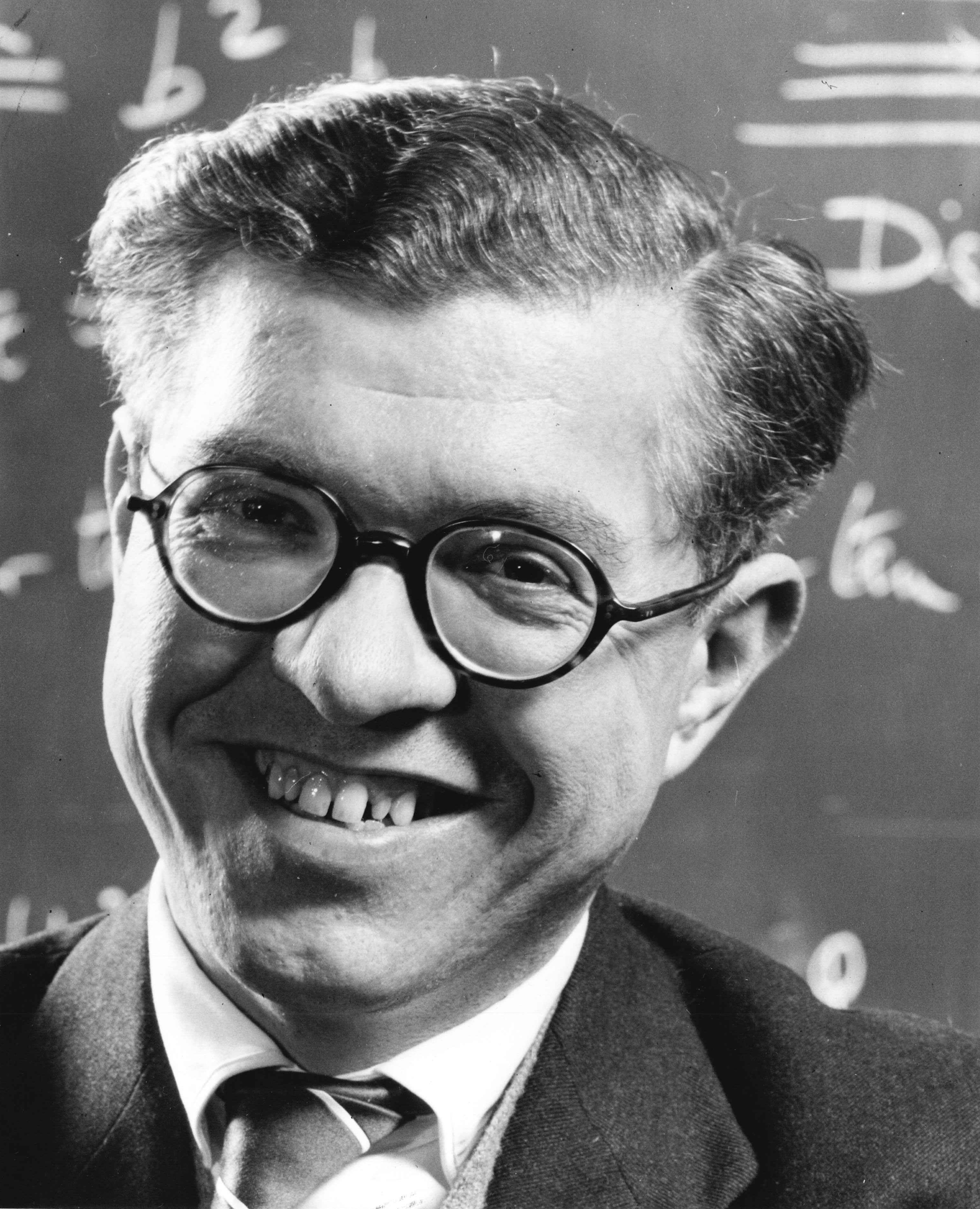
Fred Hoyle in the 1950s. For permission to reproduce, please contact Kathryn McKee km10007@cam.ac.uk
Hoyle came up to the University of Cambridge as an undergraduate at Emmanuel College in 1933, became a Fellow of St John’s College in 1939, and was the University’s Plumian Professor of Astronomy and Experimental Philosophy from 1958 to 1972. In 1972 he resigned from the University and moved away from Cambridge to live in a remote corner of the Lake District, and later in Bournemouth, with his wife, Barbara.
After Hoyle’s death, his family donated his personal papers, books, photographs and some artefacts to St John’s College Library. This generous donation arrived in ten large filing cabinets, later re-housed in 150 archival boxes, and is the largest collection of papers held by the Library. The collection spans Hoyle’s lifetime and beyond, from family photographs taken in the late 1800s to biographical research notes donated by Hoyle’s biographer Simon Mitton. As well as some of the more unusual artefacts mentioned above, it includes drafts of most of Hoyle’s articles and books, correspondence with many of the leading scientists, politicians and personalities of his day, and the minutiae of everyday family life.
It’s almost impossible to summarise the contents of the collection either systematically or comprehensively. Hoyle was a man of many interests; he would move from topic to topic as inspiration struck and left behind him a trail of draft articles, talks, lectures and mathematical jottings, all written on endless Heffers writing pads, the tops of pages often numbered but the pads rarely dated.
The collection contains a wide variety of correspondence. Hundreds of letters from members of the public were retained by his family. Many of these were written in support of Hoyle’s ‘steady state’ theory, a now scientifically unfavoured alternative to the big bang theory, others in response to Hoyle’s radio and television appearances, and a small but significant number voicing the authors’ own scientific, religious and philosophical theories. In his early career and during World War II he worked closely with Cambridge physicist Ray Lyttleton, and roughly seventy of Lyttleton’s letters, written in pencil and seldom dated, survive from this time. Towards the end of his life Hoyle was collaborating with Geoffrey Burbidge in California and Jayant Narlikar in India, with whom he communicated primarily via fax. Revised drafts of their articles and book zipped around the world several times and many copies remain in the collection.
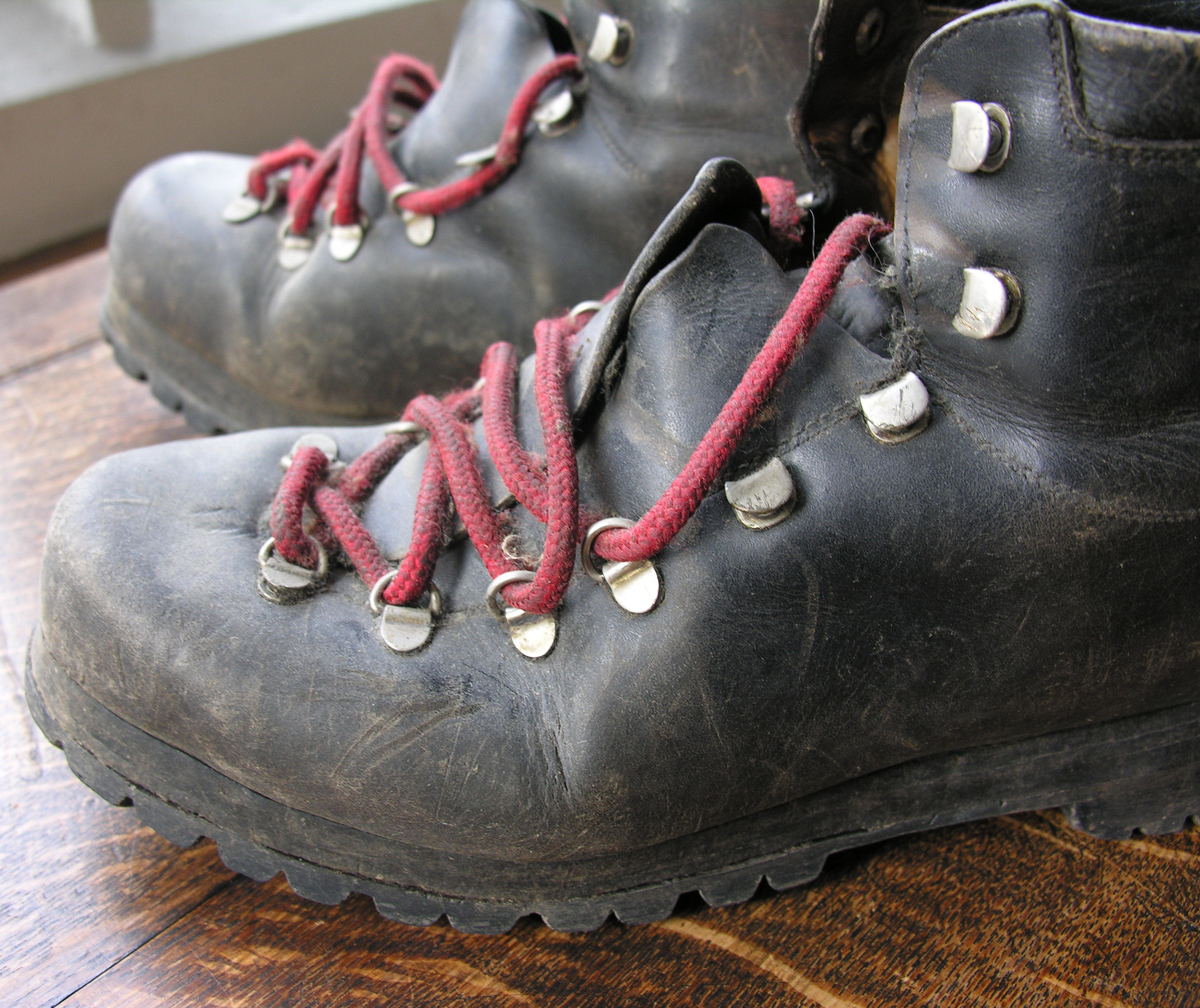
Fred Hoyle’s walking boots, donated to St John’s College in 2002.
Ten boxes in the collection hold the drafts of thirty-or-so unpublished detective stories set in the fictional St Stephen’s College, Cambridge, written during the 1990s. Several others contain science fiction novels and plays—Hoyle collaborated for a time with another famous Yorkshire man, J.B. Priestley, on a play called The astronauts that was never completed—mostly in Hoyle’s recognisable (and thankfully legible) handwriting, and sometimes in the hand of his son, Geoffrey (with whom he co-authored several books) or his wife Barbara. Eighteen of Hoyle’s science fiction novels were published, beginning with The black cloud in 1957 (republished by Penguin in 2010) and ending with Comet Halley in 1986. The manuscripts of many, though not all, of these survive; some were the victims of Hoyle’s frequent travel between Cambridge and the California Institute of Technology. All of Hoyle’s published works are, however, represented in his own library of books, also held by St John’s College, which include author copies in myriad languages as well as some copies (in English) annotated by Hoyle in preparation for later editions.
And what of the exceptional items listed at the start? Hoyle was a keen mountain climber and hill walker; the walking boots and ice axes were donated in acknowledgement of that, along with several annotated Ordnance Survey maps, a and Hoyle’s bright orange walking rucksack complete with compass in the top pocket. The dental X-rays show Barbara Hoyle’s wisdom teeth in the 1940s: the dentist decided that they didn’t need any work for the time being. The film reels show family recordings of Hoyle at Stonehenge, considering its possible astronomical uses. The comic opera in three acts, The Alchemy of Love or the Daemon Servant’s Retribution, with libretto by Hoyle and music by American composer Leo Smit was never performed in full. Another collaboration between Hoyle and Smit, Copernicus: Narrative and Credo, a ‘secular cantata’ about the life and work of the sixteenth-century Polish astronomer was premiered in 1973 and is available today both as a musical score and a CD recording.
From March 2008 to March 2011, the Hoyle Collection has been catalogued, and opened up to new audiences, as part of the Hoyle Project, funded by the Heritage Lottery Fund, St John’s College, and the Friends of the Center for the History of Physics, American Institute of Physics. A full catalogue of the papers is available upon request to the Library, and a summary list is available online. More information about Hoyle including an online exhibition of the Collection is available on the Hoyle Project webpages.
The Hoyle Collection is only one of several significant collections of personal papers in St John’s College Library. Full details of the Library’s holdings of papers, manuscripts and rare books are available on the Library’s website.
Katie Birkwood (St John’s)

